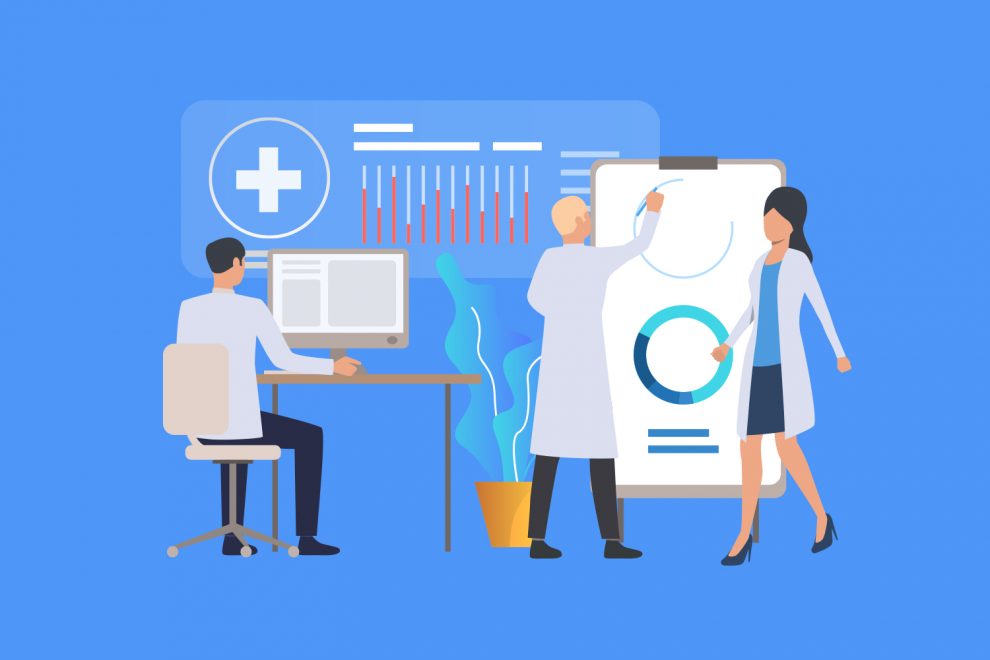The Hospital Information System (HIS) market is witnessing significant growth due to the increasing demand for digital solutions to streamline healthcare operations and enhance patient care.
Hospital Information Systems (HIS) represent comprehensive, integrated systems designed to oversee various aspects of healthcare delivery in hospitals and healthcare facilities. These systems optimize processes, boost efficiency, improve patient care, and support better decision-making by integrating electronic health records (EHR), clinical documentation, administrative functions, and financial management. This overview provides insights into the crucial dynamics, trends, and recent developments influencing the Hospital Information System (HIS) market.
A key driver behind the HIS market’s expansion is the shift towards value-based care and patient-centric healthcare delivery models. HIS solutions empower healthcare providers to consolidate patient data, streamline clinical workflows, and improve communication and collaboration among care teams, ultimately enhancing patient outcomes and satisfaction. Furthermore, the COVID-19 pandemic has expedited the adoption of telemedicine and remote healthcare services, increasing the demand for HIS solutions that facilitate virtual care delivery, remote patient monitoring, and telehealth consultations.
Key Dynamics:
- Rapid Adoption: The global Hospital Information System market is witnessing substantial growth, propelled by factors such as the increasing digitization of healthcare, government initiatives advocating electronic health records (EHRs), and the demand for enhanced operational efficiency and patient care outcomes. Hospitals and healthcare organizations are increasingly investing in HIS solutions to streamline workflows, improve data management, and adhere to regulatory requirements.
- Comprehensive Integration: Modern HIS solutions offer the integration of diverse modules and functionalities, encompassing electronic medical records (EMR), patient scheduling, billing and revenue cycle management, laboratory information systems (LIS), pharmacy management, and clinical decision support systems (CDSS). Integrated HIS platforms ensure a seamless flow of information across departments, enabling healthcare providers to access comprehensive patient data, streamline processes, and enhance care coordination.
- Interoperability and Data Exchange: Essential features of Hospital Information Systems include interoperability and data exchange capabilities, facilitating seamless communication and sharing of patient information among healthcare providers, facilities, and systems. Standardized data formats, health information exchange (HIE) networks, and interoperability standards like HL7 and FHIR enable the integration of HIS with external systems, including EHRs, medical devices, and telehealth platforms.
- Patient-Centric Care Focus: Hospital Information Systems play a pivotal role in supporting patient-centric care delivery by providing a holistic view of patient health information, facilitating care coordination, and enabling personalized treatment plans. Features like patient portals, telemedicine integration, and remote monitoring capabilities empower patients to actively engage in their healthcare management and communication with healthcare providers.
Key Trends:
Cloud-Based Solutions: The surge in adopting cloud-based Hospital Information Systems is driven by advantages like scalability, flexibility, cost-effectiveness, and accessibility. These solutions eliminate the need for on-premises infrastructure, reduce IT maintenance burdens, and facilitate seamless remote access to patient data and applications, making them ideal for multi-site healthcare organizations and small to mid-sized hospitals.
Artificial Intelligence (AI) and Analytics: AI and analytics are reshaping Hospital Information Systems, introducing advanced capabilities like predictive analytics, clinical decision support, population health management, and revenue cycle optimization. AI-powered algorithms analyze extensive patient data to identify trends, patterns, and insights, supporting clinical decision-making, resource allocation, and initiatives for quality improvement.
Mobile Health (mHealth) Integration: Integrating mobile health technologies with Hospital Information Systems facilitates remote patient monitoring, telemedicine consultations, and mobile access to health records and care plans. Mobile apps, wearable devices, and telehealth platforms empower patients and healthcare providers to communicate, collaborate, and access health information from any location, enhancing care accessibility and patient engagement.
Cybersecurity and Data Privacy: Cybersecurity and data privacy are critical concerns in the Hospital Information System market, given the sensitivity and confidentiality of patient health information. HIS vendors and healthcare organizations prioritize robust security measures, encryption protocols, access controls, and compliance with regulations such as HIPAA to safeguard against data breaches, ransomware attacks, and unauthorized access to patient records.






























